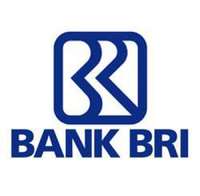
Front Liner
Syarat Umum
Syarat Khusus
- Berjenis kelamin Pria atau Wanita
- Lulusan pendidikan min. D3/S1 segala jurusan dengan IPK min. 2.75 (PTN) dan 3.00 (PTS)
- Berusia maks. 25 tahun
- Berpenampilan menarik dan ramah
- Belum menikah
- Mampu mengoperasikan komputer
- Memiliki tinggi badan min. 155 cm (Wanita); 165 cm (Pria)
- Bersedia ditempati di Kepulauan Nias
Berkas yang dibutuhkan:
- FC Ijazah dan transkrip nilai dilegalisir 1 lembar
- Pasfoto 4x6 berwarna 1 lembar
- FC KTP1 lembar
- Foto berwarna seluruh badan card postcard 1 lembar
- Surat keterangan belum menikah dari Lurah/Kepala Desa
- SKCK
- Surat keterangan sehat dari dokter/RS
Tata Cara Pelamaran
Jika Anda berminat pada Lowongan Kerja Tahun 2020 ini, silakan kirim berkas lamaran Anda ke:
PT Bank Rakyat Indonesia (Persero) Tbk
Jln. Gomo No. 1-3 Gunungsitoli
paling lambat 15 Januari 2020
Semoga informasi ini bermanfaat bagi Anda semua. Jangan lupa untuk membagikannya kepada teman atau kerabat yang membutuhkan. Bagi Anda yang ingin mempelajari soal-soal CPNS dalam mempersiapkan diri menghadapi tes CPNS, silakan lihat soal-soal CPNS terbaik di KUMPULAN SOAL CPNS. Sekian dan terima kasih.
Keterampilan/ Skill
Deskripsi Perusahaan
The history of PT Bank Rakyat Indonesia (Persero) Tbk (“BRI”, “Bank”, or “Perseroan”) began in 1895 in Purwokerto, Central Java, by Raden Aria Wiriatmaja, originally to manage mosques’ cash, to be distributed to the public using a simple scheme. Throughout history, various names have been attached to BRI, beginning with “Hulp en Spaarbank der Inlandsche Bestuurs Ambtenaren”, Hulpen Spaarbank der Indlandsche Bestuurs Ambtenareen, Syomin Ginko, and finally, officially established as Bank Rakyat Indonesia on 18 December 1968 by virtue of Law No. 21 Year 1968.
In 1992, BRI changed its legal status to PT Bank Rakyat Indonesia (Persero) by virtue of Law of Banking No. 7 Year 1992 and listed its stocks on Jakarta Stock Exchange, now the Indonesia Stock Exchange, on 10 November 2003, with the stock code BBRI. In 2007, BRI undertook strategic steps by acquiring Bank Artha Services (BJA), which was then converted into PT Bank BRISyariah. BRI’s Syariah Business Unit then was spun-off from BRI and merged into PT Bank BRISyariah (BRI Syariah) on January 1, 2009.
Since its establishment, BRI consistently focuses on micro, small and medium enterprises (SMEs), and became the pioneer of microfinance in Indonesia. The Bank maintains its commitment until today, and with the support of its experience in delivering banking services, especially in the SME segment, BRI has been able to record the achievement of being the most profitable bank in 11 years in a row. Such an achievement is the result of hard work of all BRI employees who ceaselessly innovate and develop banking products and services for all business segments.
Through innovation, BRI is able to respond to any developments in society and the business world. One of them is the development of technology. BRI is the first to provide banking self-service in Indonesia through BRI Hybrid Banking in 2013.
BRI also brought its technology-based banking services to every corner of the country, even to the small islands of the archipelago. In 2015, BRI launched Teras BRI Kapal, the world’s first ever sea-floating banking service. Then, in 2016, a new history was made. On June 18, 2016 18:38 pm Kourou time, French Guiana, BRI launched BRIsat, making it the first bank in the world that owns and operates its own satellite.
Procurement of this satellite was part of BRI’s strategic plan to strengthen the supporting infrastructure for digital services of the future, which could offer quality banking technology from the center of the city to the remote corners of the nation.
In order to provide the best service for customers, BRI increased the number of ATM machines up to 24.292 units as well as the number of EDC as many as 257.712 units. E-channel network spread all over Indonesia is the evidence of BRI consistency in reaching the then unreachable.
BRI continues to expand its network. To strengthen its business existence in the global arena, BRI opened overseas units. In 2015, BRI opened an overseas branch office in Singapore, following the existing overseas unit, such as BRI New York Agency, BRI Cayman Island Branch, Hong Kong Representative Office, and BRI Remittance Hong Kong.
To address the growing market and the diverse needs of the community on banking products and services, BRI elaborated its business segments into: Micro Business and Program, Retail Business, Corporate Business, International Business, Treasury and Capital Market Supporting Services, as well as subsidiaries that focus on the business of Sharia Banking, Agribusiness, Remittance, Insurance and Financing.
BRI’s elaboration on financing segments became more visible in 2016, as BRI added new members engaging in multifinance business by increasing its capital participation in PT BTMU-BRI Finance from 45% to 99% so that BRI became the controlling shareholder. Upon completion of this process, PT BTMU BRI Finance later renamed as PT BRI Multifinance Indonesia.
Every corporate action and work plan is part of BRI’s effort in providing complete banking services to its customers, especially the SME sector. Following the presence of BRIsat, BRI now can maximize its digital banking services. A number of digital initiatives for SMEs has been in operation in 2016, from the development of Teras BRI Digital, e-Pasar, one million free domain program for SMEs, and the launch of co-working space. All initiatives for SMEs are carried out to create a superior MSMEs in the era of digital economy.
Going forward, with its identity and more than 11 years of extensive experience in finance, BRI will provide the best banking services in Indonesia for all parties. BRI will also continue work hand in hand with Indonesian SMEs to continue increasing their capacity to become regional champion and eventually, BRI banking services will keep on propelling the national economy and bring greater prosperity for the country.